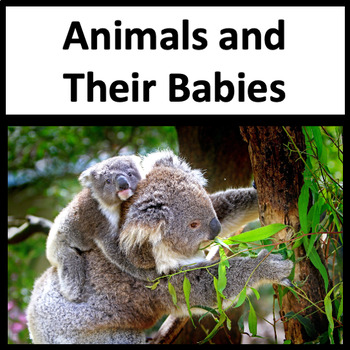First Grade Unit on Animals and Their Babies
Your 1st-grade class will enjoy these fun activities while learning about animal parents and their babies!
First-grade students will love learning about animals and their babies. These interesting activities will engage them.
This is a standards-aligned science unit.
NGSS 1-LS1-2. Read texts and use media to determine patterns in the behavior of parents and offspring that help offspring survive. [Clarification Statement: Examples of patterns of behaviors could include the signals that offspring make (such as crying, cheeping, and other vocalizations) and the responses of the parents (such as feeding, comforting, and protecting the offspring).]
NGSS 1-LS3-1. Make observations to construct an evidence-based account that young plants and animals are like, but not exactly like, their parents. [Clarification Statement: Examples of patterns could include features of plants or animals share. Examples of observations could include leaves from the same kind of plant that are the same shape but can differ in size; and, a particular breed of dog looks like its parents but is not exactly the same.]
Utah SEEd Standard 1.2.3 Obtain, evaluate, and communicate information about the patterns of plants and nonhuman animals that are alike, but not exactly like their parents. An example could include that most carrots are orange and shaped like a cone but may be different sizes or have differing tastes. (LS3.A, LS3.B)
Utah SEEd Standard 1.2.4 Construct an explanation of the patterns in the behaviors of parents and offspring which help offspring to survive. Examples of behavioral patterns could include the signals that offspring make such as crying, chirping, and other vocalizations or the responses of the parents such as feeding, comforting, and protecting the offspring. (LS1.B)
Your download contains a variety of activities!
Your 1st grade class will LOVE these engaging activities!
"I am thrilled with this unit. It is really well planned and easy for a teacher to implement. The directions were clear and the labs used low cost household materials."
"This is a great unit for first grade. My students loved their little books and loved learning about animals."
Students will participate in sorting activities, vocabulary matching cards, and worksheets on animals and their offspring. Students will make a top tab book on animals and even do read some informational text passages that are at a first-grade level. This resource also includes word wall words and a blank so that you can add your own words. Students will learn that plant and animal offspring are like their parents, but not exactly alike. They will evaluate how they are alike and how babies are different from their parents.
Students will also learn that animal parents have behaviors that help their babies to survive. Animal parents feed, comfort, protect, and carry their animal babies. Students will also learn that animal babies let animal parents know that they need something by their own behaviors such as crying or nudging animal parents.
Try this unit TODAY:










